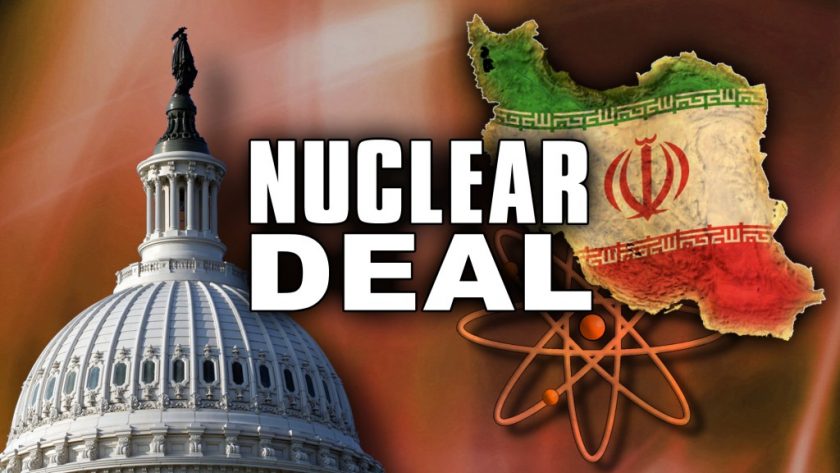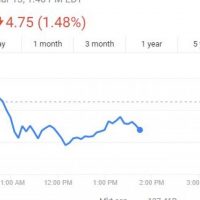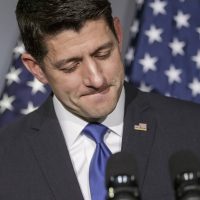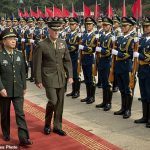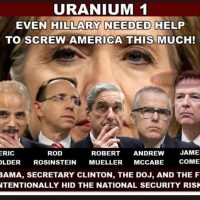The critical signal Trump needs to send Iran and North Korea.
The disastrous nuclear deal with Iran that former President Barack Obama considers his foremost foreign policy legacy is tottering. President Trump has threatened not to extend the waiver of U.S. sanctions on Iran related to the nuclear deal when the waiver comes up for renewal next month unless there are fundamental changes to the Joint Comprehensive Plan of Action (JCPOA), as the nuclear deal is formally known. If the president follows through with his threat, the JCPOA will be on its death bed.
The changes that President Trump wants addressed are an end to the JCPOA’s so-called sunset provisions under which limits on the Iranian nuclear program begin to go away after 10 years, more comprehensive access by international inspectors to Iran’s military sites, and curbs on Iran’s ballistic missile program. Secretary of State nominee Mike Pompeo and incoming National Security Adviser John Bolton have opposed the nuclear deal from the outset and are likely to reinforce President Trump’s own desire to exit the JCPOA in its present form.
The Western European parties to the JCPOA negotiations – France, the United Kingdom and Germany – have been working with the State Department director of policy planning Brian Hook and other State Department officials to reach agreement on possible changes to the deal. However, even if the Western Europeans are willing to advocate for the changes that President Trump is seeking, Russia and China are unlikely to go along.
More importantly, Iran’s Foreign Minister Mohammad Javad Zarif said earlier this year that the nuclear deal was “not renegotiable.” In fact, Iran has threatened to withdraw from the deal even if, as Iran’s Deputy Foreign Minister and JCPOA negotiator Abbas Araqchi said, “the ultimatum is passed and waivers are extended.” Not content with the financial largesse and relief from sanctions the Iranian regime has already pocketed, the regime wants more assurances that major banks and companies will actually do business with Iran. “If the same policy of confusion and uncertainties about the JCPOA continues, if companies and banks are not working with Iran, we cannot remain in a deal that has no benefit for us,” Araqchi said. “That’s a fact.”
In short, the Iranian regime wants even more economic benefits from the West to remain in the nuclear deal. President Trump wants more restrictions imposed on the Iranian regime, with no additional concessions to the Iranians in return, to continue the waiver of U.S. sanctions and stay in the deal. There appears to be no middle ground preventing the JCPOA from imploding.
The New York Times editorial board is already predicting disaster if President Trump follows through with his ultimatum. Its April 1st editorial praised the benefits of the nuclear deal. “If Iran tries to cheat, the most rigorous technological verification system in the world can detect the violations and alert the world in time to intervene,” the editorial proclaimed. Not quite. The inspection process is full of loopholes, providing the Iranian regime plenty of opportunity to cheat undetected at its military sites. The regime has declared such sites to be off limits to any international inspection. “No one in Iran will permit the IAEA [International Atomic Energy Agency] access to military sites, such access is not part of the nuclear deal, the additional protocol or its safeguard agreement,” Behrouz Kamalvandi, the spokesman for the Atomic Energy Organization of Iran, said last January.
The Times editorial also stated that the concern over Iran’s continued building of ballistic missiles was not among the concerns that “were supposed to be prevented by the deal.” This statement is misleading at best. The United Nations Security Council Resolution 2231, which endorsed the JCPOA and purported to make it binding as a matter of international law, also “calls upon Iran not to undertake any activity related to ballistic missiles designed to be capable of delivering nuclear weapons.” Even if technically weaker than an outright legal prohibition, the intent to shut down any activity by the Iranian regime related to such ballistic missiles, and its intrinsic connection to the nuclear deal endorsed by the same resolution, is clear.
Not content with blatantly misrepresenting the flawed Iran nuclear deal itself, the Times editors went on to link its continuation to the success of negotiations with the North Korean regime over dismantling its nuclear program. The editorial claimed that if President Trump withdraws from the JCPOA, North Korea’s dictator Kim Jong-un “will see it as proof that the United States cannot be trusted to stick to its commitments and will be reluctant to reach any agreement.”
The problem with the Times’ argument is that there is no way of knowing for sure whether the Iranian regime is sticking to its commitments because it will not allow unfettered, anytime-anywhere international inspections. North Korea and Iran in the past have cheated on their prior nuclear-related commitments. There is no reason to expect a different result this time absent ironclad inspection and verification mechanisms along with immediate punitive consequences for any violations.
President Trump’s messages to both Iran and North Korea should be simple and direct: No more buying time to further develop nuclear arms and ballistic missiles capable of delivering them. No more economic concessions granted upfront before there is verifiable proof of significant irreversible dismantling of key elements of both the nuclear arms and ballistic missile programs. No loopholes or exceptions to an in-country foolproof international inspection regime.
There is one linkage between Iran and North Korea that the New York Times editors chose to overlook – the dangerous collaborative relationship between the two rogue states to bolster both of their nuclear weapons and missile programs. The JCPOA made the collaboration easier by removing, for example, a large Iranian state-owned financial institution, Bank Sepah, from the UN and U.S. sanctions lists. Not only has this bank been involved in facilitating Iran’s own weapons program. It has also been involved in the past in a relationship with a North Korean bank that “has been used for North Korea-Iran proliferation-related transactions,” according to the U.S. Treasury Department.
By being tough with the Iranian regime and demanding changes to the flawed JCPOA, President Trump would be sending at the same time the right signal to North Korea that he means business in advance of any summit meeting he may have with Kim Jong-un.
Link: https://www.frontpagemag.com/fpm/269786/are-iranian-nuclear-deals-days-numbered-joseph-klein
Want more BFT? Leave us a voicemail on our page or follow us on Twitter @BFT_Podcast and Facebook @BluntForceTruthPodcast. We want to hear from you! There’s no better place to get the #BluntForceTruth.

